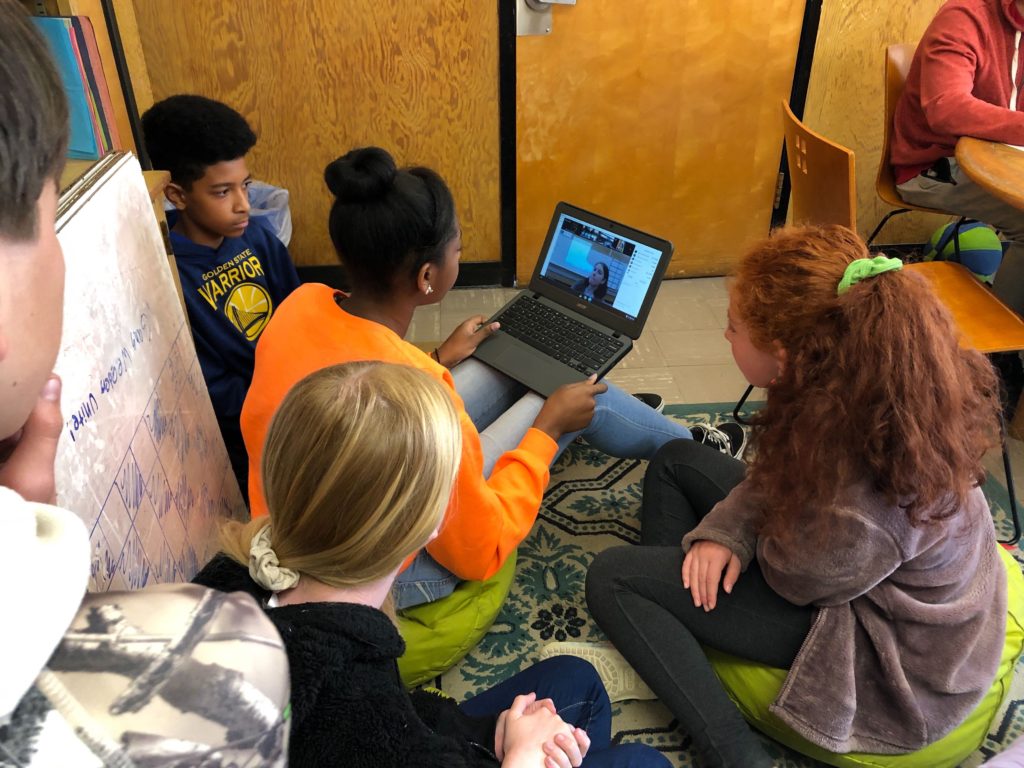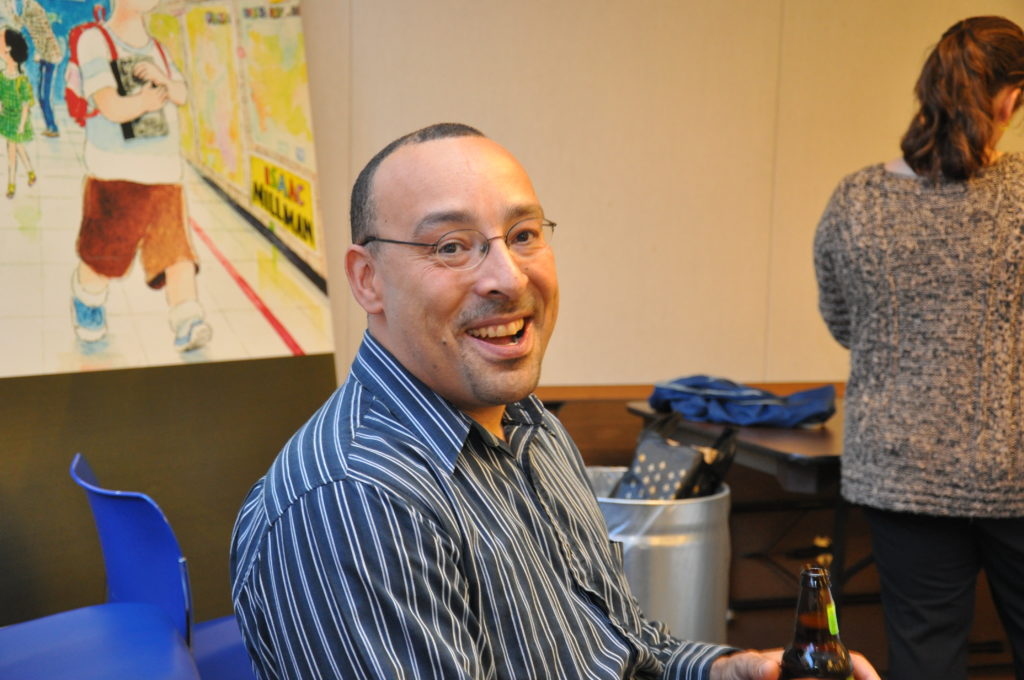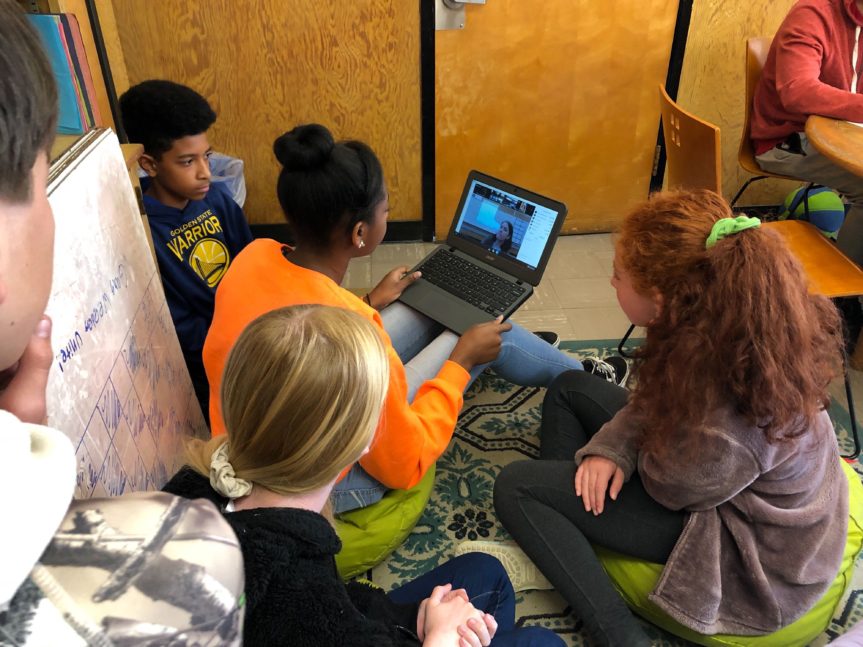Part I: Resetting and Re-correcting the Record on Public Schools vs. Charters

PART I
As with all tragedies, we as humans flow from different stages to overcome trauma and grief, and move forward to rejoin the community. We reset, reflect, re-engage, and renew. We, at Great School Voices, have spent the past few months in relative darkness — to reset expectations and reflect on what this platform means and the direction in which to take it.
As we queue up new content to re-engage with you, our Great School Voices readers, we listened and followed the change that is happening in Oakland. We also listened to how this blog has been received. And now, on what is Dirk’s birthday week, we’d like to take the opportunity to re-introduce this platform to you.
Over the next few days/posts from me, I want to first reset the conversation about a topic that has resurfaced that has been mistakenly interpreted for how we define this blog. Here, I’ll reflect on why Great School Voices came to be, and why we believe it’s such a critical platform for the community. Finally, I am renewing our commitment to Dirk’s ethos behind his blog, and will implore you to do the same as we each carry on his legacy, by pushing the envelope for great schools in Oakland, and beyond.
Resetting, Reflecting, and Recorrecting the Record on Public vs. Charter Schools
One of the most prominent messages of feedback that we have received is that Great School Voices is unapologetically pro-charter school and critical of Oakland public schools, and by extension, critical of teacher unions. With Dirk being by far the most prominent voice here and shepherding the content from the beginning, that sentiment puts a label on Dirk as this site’s founder and also threatens to form an indelible impression on this site itself. This creates a prejudges all of the voices that you’ve heard on the platform and will hear from in the years to come.
And that’s not fair. So, I feel the need to address it directly, so that we can move forward with what Great School Voices is really about.
Having known and worked alongside Dirk for nearly 20 years, I feel compelled to say, both empathetically and unapologetically—you got Dirk wrong.
Dirk wrote extensively on this issue of charters and public schools for years, even compiling a greatest hits album of his perspective. He made clear over and over that he was both a charter school and union agnostic, and that charters and unions had much to learn from each other.
I don’t think it was an accident that his very first post in the summer of 2015 had nothing to do with charter schools at all. In fact, it celebrated the signing of the union contract with OUSD and laid out exactly where we should focus our energies to reach equity. Expanding on charter schools to replace existing schools certainly wasn’t in that 4 point plan.
His words just reverberate that public education demands conversations beyond camps, and focused on solutions for children:
“So forget being for or against a certain governance model or a non-existent “charter movement.” Let’s change the debate to defining quality and equity and getting a system that transparently holds all schools accountable on those dimensions. Our most challenged students desperately need an expansion of quality options. Unfortunately, the current rancor moves us away from the needed debate and has us boxing shadows for our own rhetorical edification, while students wait for a better education.”
If his words don’t convince you, let me run a brief history of his actions as they relate to this sentiment. Dirk always lived what he wrote:

- As the Board Chair of a Brooklyn-based charter school, he led arguably the fastest union negotiations within a charter school, agreeing to nearly all of the terms demanded by the staff and the UFT, so that the school could immediately work to solve the needs of its children after a tumultuous first few years of opening. This was one of the charter schools we helped incubate.
- He then worked with the UFT to open another unionized charter school!
- During this time on the executive committee at Education for Change, Oakland’s largest charter management organization, he voted to recognize the union.
- With our Charter School Incubator, we reviewed many charter school applications that sought to have a collectively bargained staff from the beginning, and fully supported their efforts to do so. More importantly, all nineteen charter schools that we incubated come from the community to face an urgent need. High-functioning autism students. A Montessori model. CTE middle/high schools with strong links to the community; others with admissions preferences for ENL students. High schools with pathways to law school. Several schools for overage or uncredited students.
- When charter schools were grossly failing their students, as we saw in 2010 when we were asked to independently review some schools in post-Katrina New Orleans, we made explicit recommendations that they be closed. After all, that is the reason why charter schools exist; they should not stay open if their model doesn’t create equity. (And yes, for all of the charter school advocates out there, I hear you about authorizers, and per pupil allocations, etc. etc.).
- In the middle of the pandemic, he was one of the first to tell you that children needed public schools open, and up until his last day, he pushed feverishly for free internet for every child in America.To Dirk, internet was a human right that was critical to assuring that every public school child had the resources that he/she/they needs for a high quality public education.
There’s no single scapegoat for why public education overall has consistently failed our children, especially students of color. And yes, failing charter schools are a part of this and they are by no means perfect. Even Dirk would tell you so. He also would never back down from a fight about them either, especially when the data speaks truth about the host of charters out there creating equity for Black and Latinx students.
By amplifying their successes however, whether it be with school safety or pandemic-related supports, the intention of Great School Voices is not to play favorites. This intention echoes back to why states engaged charter laws in the first place: to hypotest new, innovative models for educating the most vulnerable or lowest performing regions in the country, and to share best practices in order to lift all boats.
Has it turned out that way? Of course not. Public education, by being public, is woefully political, and America thrives on a scarcity mindset where there’s a fight for dollars, ideologies, and influence. For example, “beloved” folks like Betsy DeVos have done no one any favors by weakening oversight for state authorizers so that low performing schools and even for-profit schools remain open. If we want to talk about problems with charter schools, those are certainly conversations to have.
When it comes to charters and unions, there’s also a larger danger in creating sides where they should not exist. It’s reductionist. It’s a shell game. It’s meant to consolidate influence, control the narrative, and divide us into camps to turn attention away from the state of public education. It’s easy to point fingers when we’ve created an us vs. them binary but who never gets discussed in these debates are the most critical stakeholders—our children.
To me and certainly for Dirk, the anti-charter, anti-union sentiments endanger our conversations about our public schools in the same way most of our talk about government has been for some time now. It’s emblematic of the times we live in.
Misinformation and disinformation proliferates to keep the status quo. Parents struggle to create informed opinions, because of either the deluge of information available from our screens or the lack of data at all. Trending topics and policies – especially those enwrapped in American symbology and culture – intentionally rile up a base to make us problem-focused as opposed to solution-oriented. Most importantly, it relegates us to remaining an uninformed citizenry,
and in public education, that disenfranchises generations of us. It not only pulls attention from the real conversations we need to have, but it also critically prevents us from realizing our collective power and responsibility to those we teach and parent.
Don’t we do a disservice to discourse if we place people into camps, especially in public education where we all share in the stakes? Does it make sense to only speak our voice with whom we agree, or only on specific platforms because of what we think that platform stands for? Does it serve our children and our students, to hold fixed notions on the solutions, if for generations, our kids still aren’t learning?

